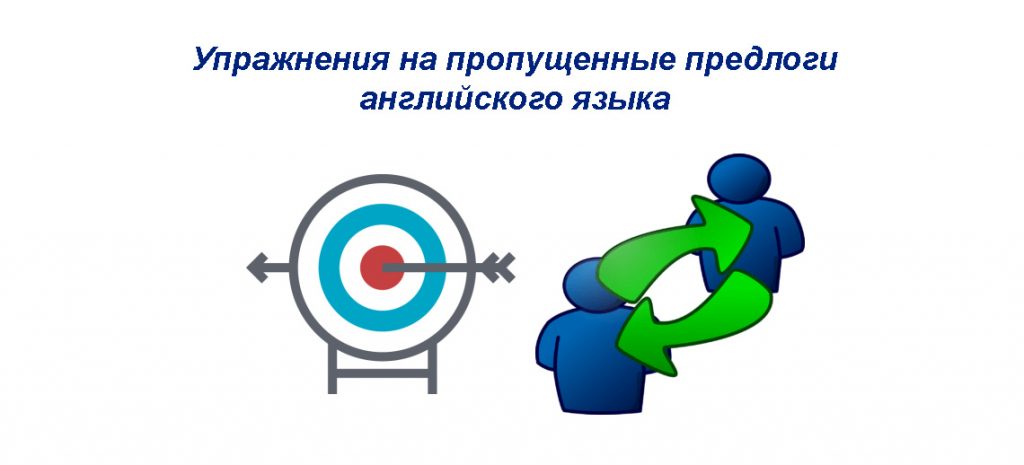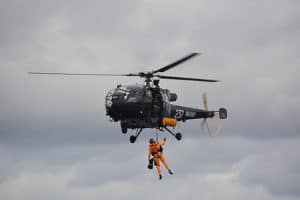1 .
1. I made a pumpkin pie and toffee apples for the party.
2. People watch a fireworks display on Guy Fawkes Day.
3. In Britain they make wreaths on May Day.
4. Look! The kids are throwing streamers!
5. We celebrate New Year’s Day on the 1st January.
6. People wish each other Merry Christmas and a Happy New Year.
7. We also hope a new year will bring wealth and good luck.
8. Pupils decorate their classroom with balloons and wallpapers.
2.
1. make a cake
2. do homework
3. make a phone call
4. make tea
5. do the gardening
6. make a special dish
7. do the shopping
8. make the decorations
9. do the washing up
10. do the dusting
3.
1. What аre they cooking for the party?
2. She isn’t wearing a witch costume.
3. Susan is decorating the room for the holiday.
4. What special dish is she making?
5. Why is he taking pictures?
6. I am not making a telephone call now.
7. They are taking nice pictures.
4.
1. What are the children doing?
2. Megan is making a cake now.
3. Look! The clowns are performing tricks!
4. Listen! Is that your brother playing the drums?
5. Pupils aren’t decorating the hall.
6. Are people in the street watching a parade?
7. I’m not listening to music. I’m watching a concert on TV.
8. Where are you going?
9. His friends are playing “pin the tail on the donkey”.
10. Andrew is blowing the horns.
5 .
1. I’d like to send some flowers. D. What do you have in mind?
2. When would you like to send them? E. On the morning of April 7th.
3. Would you like to include the card? A. Sure. I have it ready.
4. Who are they for? B. For Mary McMillan.
5. That will be 20 pounds including delivery C. Here you are.
6. Read the e-mail. Are the statements True (T) or False (F)
Dear Helen and Martin,
We are having a great time in Scotland. We are sitting in a café near the sea. Steve is reading a magazine and I’m writing this e-mail to you. But Linda is really bored here, she is sitting in her room and watching TV.
We usually go to Spain every summer but this year we wanted to see Scotland. We go for walks every day in the mountains. We don’t go swimming. It’s too cool! Linda is really missing London.
See you soon.
Steve, Ann and Linda.
1. Steve, Ann and Linda are on holiday in Spain. False (they are in Scotland)
2. Steve and Ann are sitting in a café. True
3. Linda is swimming in the sea. False (she is sitting in her room and watching TV)
4. Linda is enjoying the rest. False (she is bored)
5. Steve is reading a magazine. True
6. Ann is sending e-mails. True
7. They usually go to Scotland. False (they usually go to Spain)
8. They like swimming in Spain. False (об этом вообще не сказано)
9. They go for walks to the beach. False (they walk in the mountains)
10. The weather is not very warm. True
11. Linda is happy there. False
Итак, сегодняшний наш материал посвящен английским предлогам, а точнее, уже практике и проверки заданий этой темы. Выполните упражнения на пропущенные предлоги английского языка, вставьте нужный предлог там, где это необходимо.
Данные тесты рассчитаны на учеников уровней elementary и pre-intermediate, а также отлично подойдет, как практическое задание для всех, кто изучает английский язык самостоятельно.
Тренируемся правильно употреблять английские предлоги
Содержание
- Задание на английские предлоги
- Задание на английские предлоги 2
- Задание на английские предлоги 3
- Prepositions 1
- Prepositions 2
- Prepositions 3
Задание на английские предлоги
Заполните недостающие предлоги в следующих предложениях:
1.
I met my husband
a party
2.
Sally has been a teacher
three years.
3.
Many Swedes are good
skiing.
5.
Anne is 25-years-old. but she still lives
her parents.
6.
See you
Wednesday
7 o’clock.
7.
We are having a big party
New Year’s Eve.
8.
Shall we go
the cinema tonight
9.
I got a tie
my girlfriend
Christmas.
10.
Shall we ring
a taxi?
Задание на английские предлоги 2
Продолжаем заполнять недостающие предлоги:
1.
I must introduce you
my cousin.
2.
Don’t eat sweets, they’re bad
your teeth.
3.
I haven’t been to the cinema
years.
4.
Would you like a piece of cake
your cofFee?
5.
How often do you borrow books
the library?
6.
Yes, you’re right, Jane. I agree
you.
7.
Cheers! Let’s drink
your success.
8.
Can you look
the children tonight? I have to go to a meeting.
9.
My children are looking forward
Christmas.
10.
My brother is living
a French girl.
Задание на английские предлоги 3
И еще немного, продолжаем заполнять недостающие предлоги:
1.
Look at the exercise
the bottom of page 17.
2.
We went to Swansea
train.
3.
Do you usually have a party
your birthday?
4.
He put a ladder up
the wall.
5.
I’m really longing
the holidays.
6.
What time did you arrive
London?
7.
There is a bus stop
the end of the road.
8.
My sister is afraid
dogs.
Выполните следующие упражнения:
Prepositions 1
Заполните недостающие предлоги в следующих предложениях:
1.
I’m very interested
football.
2.
Would you like some wine
the meal?
5.
I’ve been learning English
two years.
6.
I went to Stockholm
air.
7.
I bought my son a bicycle
his birthday.
8.
My grandfather was in the army
the War.
9.
He lives
the corner of Green Street and Links Road.
Prepositions 2
Продолжайте заполнять недостающие предлоги в предложениях:
1.
Why are you
such a bad mood today?
2.
Where are you going
your holidays?
3.
Don’t speak
him now; he is not feeling very well.
4.
My wife has just been
Spain.
5.
That’s really typical
John. He says he’ll come but he never turns up.
6.
I’ve know him
many years now.
7.
I must be home
11.30 at the latest.
8.
My children are really looking forward
Christmas.
Prepositions 3
И еще немного недостающих предлогов
1.
Do you usually have a holiday
Easter?
2.
I haven’t seen John
he got married.
3.
What time do you usually get up
the mornings?
4.
My son’s really afraid
dogs.
5.
I’m afraid I’m not very good
English.
6.
See you
4 o’clock, then.
7.
There’s no point
saving nowadays, is there?
Возможно будут интересны другие упражнения:
- Лексические упражнения на части речи
- Лексическое задание английского языка уровня elementary
- Найдите лишнее слово
Ну как, получилось с первого раза без ошибок? Если нет, то рекомендуем проходить тест пока не освоите данную тему и не будете делать ошибки.
Удачи в изучении английского языка!
Просмотры: 6 089
1 Fill make or do and translate
1 …………. the decorations
2 ………….the shopping
3 …………. tea
4 ………….. a special dish
5 …………… your homework
2 Match the words to form phrases
1 light a gifts
2 exchange b the house
3 decorate c lamps
4 make d a costume
5 wear e preparations
3 Fill in the correct word
* dusting * cake * phone *decorations *homework *flowers
1. The room looks lovely with all the ………………. on the walls.
2. Can I make a ………………… call?
3. The living room is dirty we must do some …………………. .
4. I’m sorry. I can’t go out tonight because I’m doing my ……………
5. Mum is making a ……………….. for my birthday.
4 Open the brackets using Present Continuous.
My mother _________ (make) a cake for my Birthday party.
My father _______(not work) at home now.
You _______(walk) too fast.
What _____ the children _____(do) at the moment?
I _____(not do) the washing up.
The girls _____(watch) TV.
____she ______(read) a book in her bedroom?
I ____(not do) my homework now.
My family and I ____(do) shopping at the moment.
Look! The boys _____(dance).
Опубликовано 3 года назад по предмету
Английский язык
от avagimyan
Расставить слова в правильном порядке
-
1)When do your competitions start?
2)To get to red square turn left from here.
3)What is a polular kind of transport in China?
4)Why doesn’t she take the metro to get to the hospital?
5)How often does he play football?
6)Who rides a motorbike in your family?
7)How old is this bridge?
8)Where does this side street lead to?
9)Get off the train at the third stop.
10)Give way to cars coming from the right at crossroads. -
Ответ
Ответ дан
КрутаяБаффи1. When do your competitions start?
2. To get to Red Square turn left from here.
3. What is a polular kind of transport in China?
4. Why does not she take the metro to go to the hospital?
5. How often does he play footbal?
6. Who rides a motorbike in your family?
7. How old is this bridge?
8. To where does this side street lead?
9. Get off the train at the third stop.
10. At crossroads give way to cars coming from the right.-
1.When do your competitions start?
2.To get to red square turn left from here.
3.What kind of a transport is popular in china?
4.Why doesn’t she take the metro to get to the hospital?
5.How often does he play football?
6.Who is in your family rides a motorbike?
7.How old is this bridge?
8.Where does this side street lead to?
9.Get off the train at the third stop.
10.Give way to cars coming from the right at crossroads -
Ответ
Ответ дан
КрутаяБаффиПочему вы так невнимательно смотрите в условие? В предложениях 3, 6 и 8 есть ошибки.
-
Информация
Посетители, находящиеся в группе Гости, не могут оставлять комментарии к данной публикации.
1000 Collocations E-book
Everyone loves a good party! But did you know that there are several different meanings for this word in English? Let’s learn 30 words and expressions with the word “party”
1) party = celebration
The verbs we use for organizing a party are have a party and, more informally, throw a party (don’t say “do a party” or “make a party”). The people who come to a party are called guests, and the person/people organizing the party are called the hosts.
The hosts need to invite the guests to the party (ask them to come) and the guests should RSVP – inform the hosts whether or not they will attend. Although you can say “attend a party,” it’s far more common and casual to say go to a party.
When referring to presence at the party, always use at (not “in”): I was at the party last night; they will be at the party on Sunday.
A few different types of parties include:
- a birthday party to celebrate someone turning another year older
- a farewell party to say “goodbye” to someone who is leaving the area permanently or for a long time
- a housewarming party to congratulate the owners of a new home or apartment
- a surprise party is one where the main person being honored/celebrated does not know in advance that a party is being organized
When there’s a lot of activity at a party, you can say the party is in full swing. Sometimes it turns into a wild party, meaning one where people are acting crazy and may be out of control.
Party can also be a verb – for example, you can say “We’re going to party this weekend” or “My neighbors partied all night.”
2) party = a political group with a certain set of beliefs
You might have read in the news about political parties – groups of citizens and/or government members who share a particular perspective or set of beliefs.
Political parties vary from country to country, but you might have a more conservative party (which believes in tradition and keeping things the same) and a more liberal/progressive party (which wants to bring about social change and evolution).
There might also be a green party, which focuses on environmental issues, and a workers’ party, which focuses on supporting the common people/workers. Sometimes there is a radical party, which has very extreme beliefs.
The party that currently holds most of the power in the country can be called the governing party or ruling party. During elections, people’s votes might put a party into power. If you are officially registered as belonging to a certain party, then you are a member of the party.
3) party = a group of people doing something specific together
The three most common expressions with this definition of party are:
- a search party = a group of people and professionals who are looking for a missing person
- a rescue party = a group of people and professionals who are helping save people after an accident or disaster. Sometimes these two expressions are combined: for example, a “search and rescue party” to help find and save people after an earthquake
- a party of… (number) = when you make a reservation for a restaurant, you can say, for example, “I’d like to make a reservation for a party of four” – meaning that a group of four people will be eating together. If you don’t specify the number, someone at the restaurant might ask, “How many in your party?”
The search and rescue party might use helicopters to find and save people
4) party = a formal word for a person/company (often used in legal cases)
In contracts and legal language, the word “party” is a generic term for a person or company that is involved in the situtation. You might hear expressions like:
- the guilty party (the person/company that did something bad or wrong)
- the injured party (the person/company that was the victim)
- an interested party (someone who may have an interest in or be affected by this case)
- a third party (someone who is separate from the two main parties involved in the contract, negotiation, or dispute)





